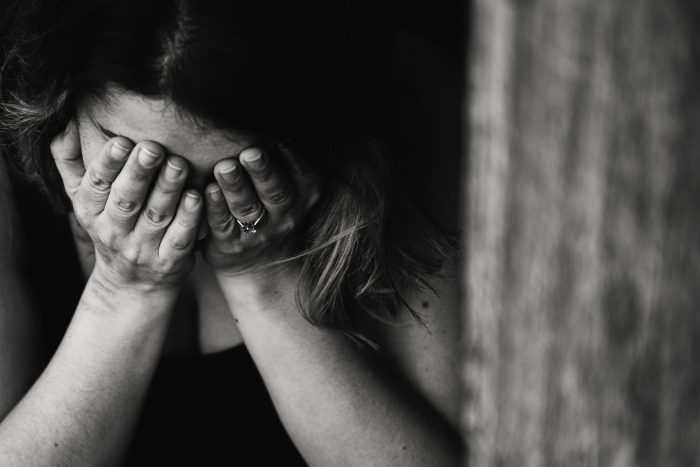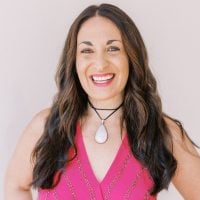Anxiety swarms in circles around my heart, like a butterfly, in anticipation of seeing something my eyes don’t want to.
A sense of doom, gloom, and sadness take over, accompanied by the disturbing thought I am invading someone’s privacy. An overwhelming feeling of ick is what I feel every time I put down this kiddo’s phone after spot-checking it.
Despite what the accusations or perceptions may be, I despise doing it. In fact—I dread it. But it is one of many things I agreed to do when we embarked on opening our home to kids in the foster care system.
I am by no means a self-proclaimed expert on foster parenting or even parenting at that. Full disclosure, I never had biological children, and while I have two step-kiddos, my relationships with them feel strained short, and I would even call it out as inauthentic. I consider myself to be on the extreme opposite end of the experienced parent spectrum, and I share this in full vulnerability from the face-first falls I have taken.
It has not been easy, yet it has also not been hard. I would call it the goldilocks metaphor of somewhere in the middle of the two.
One of my best girlfriends recently said to me, out of love, “Foster Care is a very low vibration, and it’s dark. And while someone may want to rescue, help, save, and make the world better, only certain people in the world are built to fight that dark energy. How much dark energy are you inviting into your home? I understand you are following your gut, but think about that question. Why are you really doing this?”
She shared how, from her perspective, given my whole line of work is vibration, elevating, helping people find their voice, building businesses, and mentoring; while foster parenting is a version of that, it can also go against that. And after intimately experiencing it, I do understand that perspective.
I appreciated what she asked. Her question prompted a strong heart-to-heart between my heart and my head. I lit a candle asking it to shine some light and started writing with hopes of bypassing my brain and transcribing from the heart.
For whatever reason, I started by reflecting on what wasn’t. After 30 minutes of writing, I had pages that helped clarify a few things; I don’t feel foster parenting is “my duty,” nor a task to fix a broken something, and I am certainly not doing it for fun or accolade-seeking.
And while it surprisingly has been a process of reparenting myself, because I haven’t birthed children, I also wanted to make sure that I wasn’t taking impulsive action out of grief for what wasn’t. I actually sought out trauma therapy before we started training to ensure I wasn’t trying to fill a void.
After pages of reflective writing, I was still left with no answer to, “Why am I doing this?” Why was I prompted to go through hours of training and commit to countless practicum classes ahead? And what in the hell made me think I would be qualified or equipped to open our home to some serious dark energy (as she called it) and trauma-stricken kids, especially when I couldn’t maintain a decent relationship with my step kids?
I sat with the question and came up with another that I repeated in my mind; why do the light work if I am not willing to do the dark work? Brené Brown said it best in Daring Greatly, “Numb the dark, and you numb the light.”
That was it.
Yes, I have been challenged, it’s uncomfortable as sh*t at times, I am learning more about myself than I knew I was willing to look at, and the questions and paperwork involved have been worse than the most toxic divorce I have witnessed firsthand. And—even then—I would say yes again.
There is no doubt the foster system is broken. And with much chaos happening around us now, we can all see that so many parts of the world we live in are broken too. The war, hate, homelessness, abuse, and destruction is real. And the kids in the system may very well be products of similar environments. I can understand why some people may not feel comfortable bringing such energy into their home, and even more so be turned off by partnering with families and bio parents who did the neglect and caused pain.
But we all can do only as good as we were taught and as good as we know how. So if the children and even bio families don’t ever experience better, is there a chance for lasting change? Is there a chance for light if we continue to shun the dark?
In the bigger picture, I don’t see how. And that picture seems to be getting more complicated, colorful, and messy every week.
I was in a meeting with a foster child recently who graduated from a program in a residential setting. Meaning they were placed in more of a dorm-type environment and completed a transitional program. The step after that is to find the youth a loving, stable, and maybe permanent home. At the end of the meeting, I asked the resident therapist, “What happens to youth that can’t find homes?”
The therapist looked at me with pain in her eyes and explained sometimes there may be homes in different counties, sometimes transitional living (like apartments), and other times, they have no choice but to turn them over to shelters.
I looked at her baffled and, intending clarification, asked, “You mean if they are over 18, right?”
Sadly that is not what she meant. I was in absolute disbelief, my chest tingled with anxiety, a frog-like sensation jumped in my throat, and tears filled my heart.
Teens and young children—discharged to homeless shelters because there is “just not another option.” I call bullsh*t.
There is, and there has to be. We can do better, and I suppose that is my reason.
Yes, the foster care system is dark; it’s ugly, uncomfortable, heartbreaking, full of lies and deceit, and so painstakingly sad. But I cannot and will not look away from that dark, because then what is the so-called light work all for? The meditation, mantras, prayer, and devotional work.
What is it all for if we can’t use it to light a pathway in the dark?
~


 Share on bsky
Share on bsky





Read 16 comments and reply